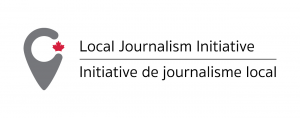Julia Stratton

Journalist | Ottawa |
English
About Julia Stratton

Julia is an Ottawa-based journalist who's covering federal policy for Vancouver and B.C. thanks to a grant from the Local Journalism Initiative and the Government of Canada.
She graduated from Queen’s University in 2022 with a Bachelor of Science. However, in her third year, she started working for her student paper and has been pursuing journalism ever since. When she’s not writing or taking photos, Julia can usually be found running, swimming, playing ultimate frisbee or aimlessly traveling around the world. She’s currently completing her Master's of Journalism at Carleton University.
Julia loves telling stories about science, nature and people.
Climate change still high on Quebecers’ election agenda
In comparison to other regions of Canada, Quebecers remain one of the most progressive provinces on climate action, with a recent poll showing 83 per cent of Quebecers want the next government to do more to protect nature and fight climate change.
Calorie counting for polar bears: New study shows link between sea ice loss and polar bear decline
When scientists discovered polar bear populations were dropping rapidly, they created a framework to understand what is standing in the way of the species’ survival.
Fire has a role to play in life and restoration
The idea to create a documentary about wildfire came to Ami and Ripper in late 2018 after wildfires in Williams Lake. B.C. sent smoke all the way to Vancouver. While these wildfires were a big deal at the time, they just foreshadowed more extreme fires that followed.
From smog to solutions: A journey of climate activism
Lily YangLiu started to worry about climate change while growing up in Beijing, China, breathing in smog everyday. The air pollution was so severe, she developed terrible asthma.
Canada's high-speed rail plans reveal transportation conundrum
Taking a train from Montreal to Ottawa recently, McGill professor John Gradek kept an eye on the speedometer. He noted it reached a top speed of about 160 kilometres per hour. That may be fast for a car, but it’s slow by train standards; high speed trains in Europe and Asia reach speeds of up to 460 kilometres per hour.
Key climate takeaways from a dramatic Fall Economic Statement
Climate takeaways from the 2024 Fall Economic Statement: updates on oil and gas, clean energy tax credits, nuclear regulations and more.
New protected area in BC gives wildlife safe passage between mountains
Geddes Creek is adjacent to Kootenay National Park and just east of the Columbia mountains and Purcell Wilderness Conservancy. This piece of land is an important piece of the Radium wildlife corridor.
Ontario makes plans to expand its electricity grid as demand soars
The government of Ontario is increasing energy procurement targets by 50 per cent, the province’s largest ever energy procurement expansion. The push is critical to keep up with the soaring demand for electricity.
Clean energy in Saskatchewan and New Brunswick get $1B infusion from feds
The federal government is allocating over a billion dollars to help Saskatchewan and New Brunswick clean up their electricity production. A key priority for the money will be Indigenous-led initiatives that help provinces transition away from using fossil fuels.









